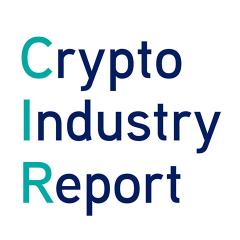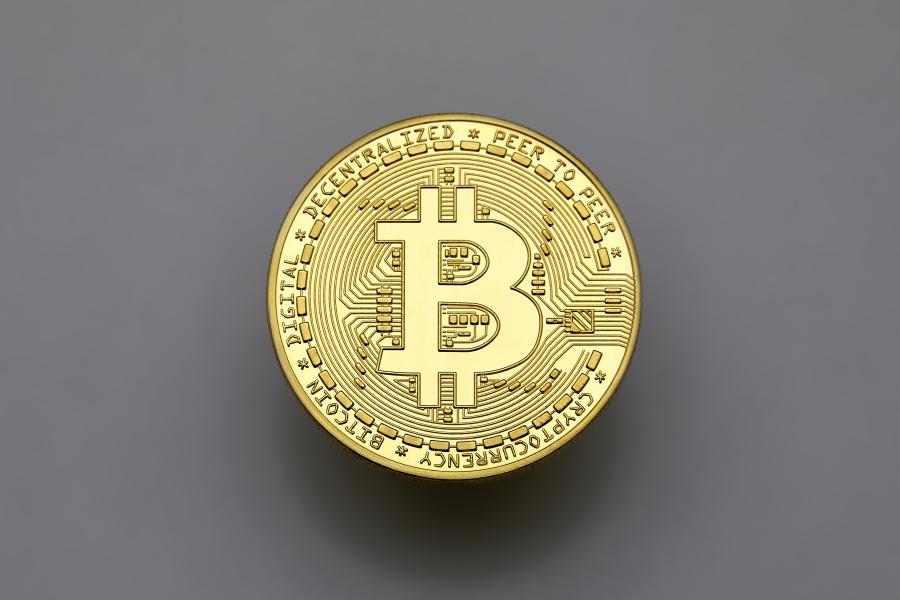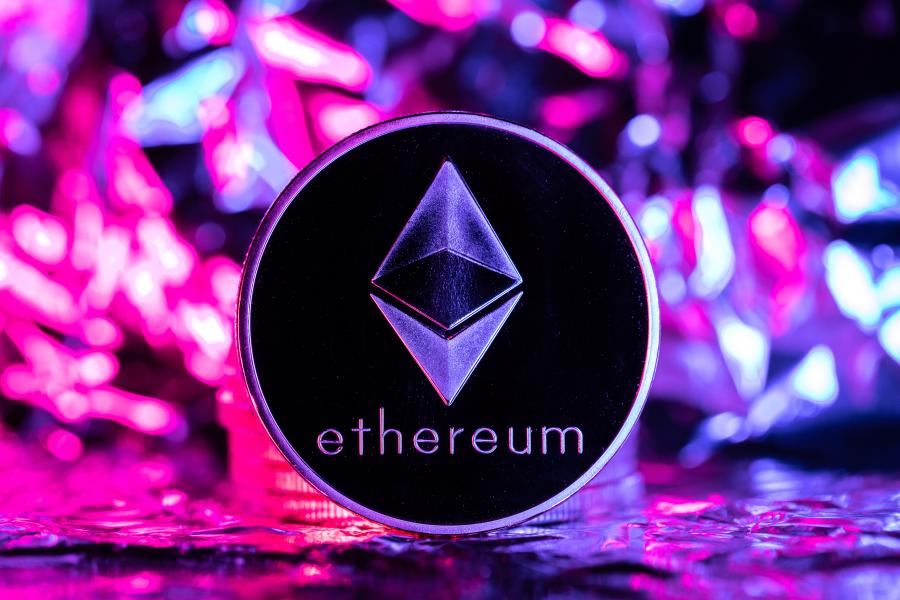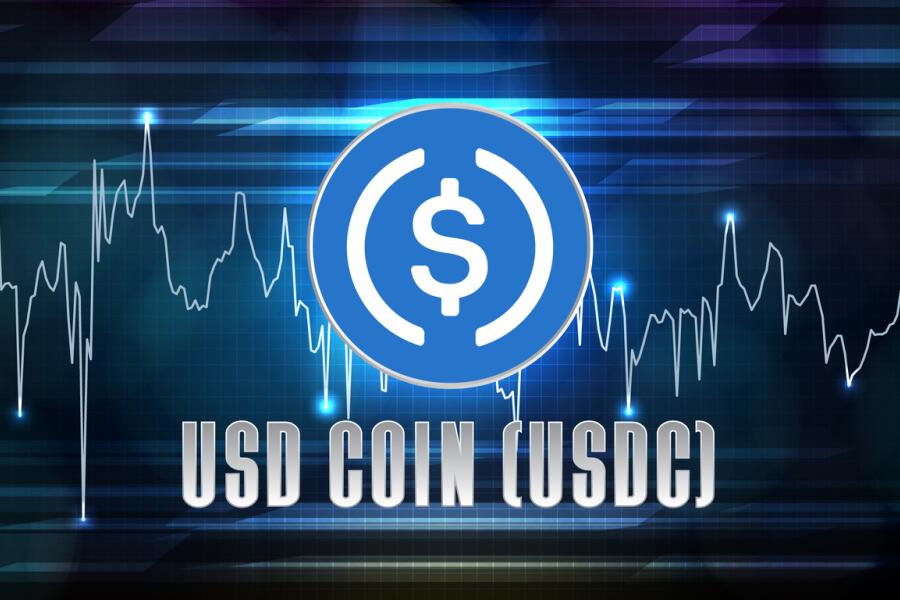Another day, another few hacks. That’s the current state of crypto
This week, our blockchain experts assessed the following topics:
- Another day, another few hacks. That's the current state of crypto
- Will DeFi become illegal in the US?
- Crypto developer activity is on fire
- One month of Ethereum post-Merge
Our bi-weekly Crypto Industry Report provides you with valuable information on the global crypto industry – picked and analysed by our blockchain experts.
Another day, another few hacks. That’s the current state of crypto
Crypto projects are getting hacked almost every other week and losing millions of dollars. Sadly, users are bearing the brunt of these attacks. On October 12, Solana-based DeFi platform Mango Markets confirmed that the protocol had been attacked by a hacker, who stole funds through an oracle price manipulation. Mango’s price plummeted by more than 40% as a result.
The hacker, who goes by the Twitter handle Avraham Eisenberg, stole $114 million by conducting an extremely profitable trading strategy. Moreover, he told the Mango community he was willing to return a portion of the stolen funds if the treasury repaid a bad debt that originated from a bailout the protocol and DeFi lending platform Solend had put together for a Solana whale that had $207 million in debt. Unsurprisingly, the Mango DAO voted in favour of this proposal, allowing them to recover $67 million of the stolen funds.
Another DeFi protocol that has suffered huge losses in the hands of hackers is the yield farming protocol Temple DAO. A $2.3 million exploit was reported on October 11. This is about 4% of the protocol’s total value locked (TVL). Experts say the funds had been available up for the taking for months, meaning the exploit was pretty easy to execute. Smart contract vulnerabilities are to blame for this attack. The hacker converted the stolen funds to ETH. Transit Swap and Wintermute are other DeFi platforms that underwent attacks in October, among seven others.
DeFi protocols aside, Binance experienced a $100 million exploit on October 6 due to a weakness in the Binance Bridge. The attacker sent himself 2 million BNB tokens worth about $570 million. However, most of the tokens are still on-chain and cannot be transferred, making the loss “only” worth $100 million. Binance asked validators to suspend deposits and withdrawals on the Binance Smart Chain (BSC) to contain the issue. Binance performed a successful hard fork six days later on BSC to address the vulnerability. The fork didn’t replace the stolen funds, however. Cross-chain operations have since resumed and the Binance community is expected to vote on how to handle the matter of stolen funds. Still, many asked about the decentralization of the project that was able to be stopped and resumed at will.
As it stands, October already marked an inglorious record as the month with the highest total value hacked in 2022 - and yes, the month isn’t even over yet. Chainanalysis says $718 million have been stolen from DeFi protocols so far this month across 11 different hacks. The blockchain analysis firm reckons 2022’s hacking activity may surpass 2021’s at the current attack rate.
Will DeFi become illegal in the US?
Regulatory scrutiny into the crypto market has taken yet another tightening turn as the U.S. Security and Exchange Commission (SEC) determines whether Yuga Labs’s NFTs are securities. The company is the creator of the infamous Bored Ape NFTs that were all the hype in 2021. The regulator has supposedly been investigating the matter since March. The SEC is also examining how ApeCoins - a token launched by Yuga Labs earlier this year - was distributed via an airdrop to holders of BAYC, Mutant Ape, and Bored Ape Kennel NFTs. ApeCoin is the NFT project’s utility and governance token.
"It’s well-known that policymakers and regulators have sought to learn more about the novel world of Web3. [...] Yuga is committed to fully cooperating with any inquiries along the way,” said Yuga Labs spokesperson.
As the SEC probes digital assets that may be securities, the Commodity Futures Trading Commission (CFTC) has gained the support of the SEC in its pursuit to oversee crypto spot markets. “I think the CFTC could well have greater authorities,” the SEC’s chairman Gary Gensler stated. Direct authority over the crypto spot market will give the CFTC oversight over digital assets such as bitcoin that are classified as commodities in the U.S. should the proposed bill — the Digital Commodities Consumer Protection Act (DCCPA) — pass in a few months. The bill will require crypto exchanges within this jurisdiction to register with the CFTC.It’s worth noting, however, that the bill has left out regulations for the DeFi space. This has caused concerns that the U.S. might accidentally ban DeFi activity in the country.
In a different regulatory matter, the Treasury Department has fined crypto exchange Bittrex $29.3 million for violating several sanctions that prohibit U.S. companies from doing business with individuals in Cuba, Sudan, Syria, Iran, and the Crimea region of Ukraine. Turning the tables is Coin Center, a research and advocacy centre for cryptocurrency. The non-profit organisation has sued the Treasury Department for overstepping its mandate and authority when it sanctioned crypto mixer Tornado Cash in August. Six individuals, including two Coinbase employees, have joined Coin Center in suing the Treasury Department over these sanctions.
Crypto developer activity is on fire
Crypto developer activity has been the highest it’s ever been in 2022 despite the bear market. For example, the number of active DApps in the market has grown by about 1,200% from 1,000 in 2018 to 12,495 in 2022 according to DappRadar. Smart contracts have also climbed from 44,023 in 2018 to 117,922 in 2022.
In relation to Web3 developer activity, Google aims to make it easier and faster for developers to build in Web3 through its cloud services. The global tech giant has announced that it will start accepting crypto payments for this service in 2023 in collaboration with Coinbase. Google has been getting more involved in the space in various ways. For example, it provided a countdown to Ethereum’s Merge upgrade which took place on September 15. Also, blockchain addresses can now be searched directly through Google’s search bar.
Famous crypto projects are also making major moves. MetaMask announced an added feature that will allow U.S. customers to instantly fund crypto purchases via ACH settlement merchant Sardine. Instant ACH will enable users to complete purchases in minutes. This will make it easier for wallet users to bridge from fiat to cryptocurrencies. Also, crypto’s most famous wallet provider has chosen 30 tokens to start with, which suggests that they might have taken a closer look at the legal status of different tokens, choosing only the ones that they believe are no securities.
At the same time, Institutional activity in the crypto sector is progressing further. The latest news reveals that the oldest American bank, BNY Mellon, launched a digital asset custody platform for select U.S. clients on October 11. The platform permits users to hold and transfer BTC and ETH. This development comes after the bank created an enterprise Digital Assets Unit in 2021.
"Touching more than 20% of the world's investable assets, BNY Mellon has the scale to reimagine financial markets through blockchain technology and digital assets," said Robin Vince, BNY Mellon’s CEO.
One month of Ethereum post-Merge
While Ethereum is going strong post-Merge, one thing has been worrying to many: Its transactions may no longer be censorship-resistant, fulfilling predictions that this was a likely outcome after the Merge. Based on data on MEV watch, 54% of all Ethereum blocks were enforcing OFAC’s censorship every day at the time of writing. This means that Ethereum blocks are made compliant with the Treasury Department’s Office of Foreign Assets Control’s (OFAC’s) sanctions against Tornado Cash and the associated Ethereum addresses.
Although this level of censorship may seem like a bad thing, there’s evidence to show that the Ethereum network isn’t at critical risk of actual censorship. That’s because there is a difference between creating/validating a block compared to building on prior blocks. The former means deciding what will be put in a block while the latter means determining if it is okay to build a block someone else made. As of now, the censorship-compliant validators are excluding Tornado Cash transactions “when creating their own blocks but building on prior valid blocks as normal even when they contain ‘contaminated’ blocks.”
In other words, 46% of the validators are including Tornado Cash transactions and the rest are building on those blocks. Therefore, Tornado Cash transactions are still added to the chain, indicating that a smaller number of censorship-resistant validators can still prevent censorship. A problem would arise if the compliant validators stopped building on prior blocks. As long as there is still 1% of validators including any transaction, no true censorship is happening.
Meanwhile, ether’s supply stats denote that inflation has declined by 98% thanks to the Merge, also as predicted. If Ethereum was still on PoW, the supply would have increased by 349K ETH. This is way higher than the supply change of 7K ETH which is the case now with PoS.
So yes, ETH issuance has plummeted by about 90% post-Merge since validators’ rewards are lower than what miners got. This, in addition to the portion of ETH transaction fees burned each day, is contributing to the decreasing supply bringing the digital asset closer to deflationary status notwithstanding the bear market. It will be interesting to see what happens to Ether should demand come back.
Share post

Related Posts

To be continued: SEC pushes back at Coinbase
SEC pushes back against Coinbase's claim of no regulatory jurisdiction, stating the crypto exchange knowingly violated securities laws. Meanwhile, Gemini, owned by the Winklevoss twins, files a lawsuit against Digital Currency Group and CEO Barry Silbert alleging fraud and deception following the collapse of a lending venture. The Bank for International Settlements survey reveals that 93% of central banks are working on Central Bank Digital Currencies (CBDCs) which are seen as potential geopolitical policy tools and a challenge to the dollar's dominance. The race for a Bitcoin ETF intensifies, with BlackRock refiling its application featuring Coinbase as the market surveillance partner, as the Grayscale Bitcoin Trust's discount to net asset value narrows, potentially indicating the transformation into a proper ETF.

BlackRock fever: The ETF filing spree and institutional appetite
BlackRock filed for a Bitcoin ETF with the SEC, inspiring similar applications from firms like WisdomTree, Invesco, and Fidelity, and boosting Bitcoin's value. Traditional finance institutions such as Fidelity and Nasdaq are showing increased interest in crypto, with moves towards exchange and custody services. The defunct crypto exchange FTX, under new CEO John Ray III, is planning a potential revival after recovering significant assets. Meanwhile, the IMF is developing a global CBDC platform for cross-border transactions and DAI, a major stablecoin, is diversifying its backing from USDC to include real-world assets.

SWIFT explores blockchain interoperability
SWIFT has partnered with Chainlink to experiment with leveraging its infrastructure for transferring tokenized value across blockchain networks. The trials will address interoperability, regulatory challenges, and operational drawbacks for financial institutions in a blockchain environment. Chainlink will provide connectivity between private and public blockchains. SWIFT's findings will be published later this year.

China wants an Internet 3.0, while Hong Kong gears up for crypto trading launch
China is striving for advancement in Internet 3.0 technologies, with Beijing's white paper outlining plans to invest in the development of the metaverse and Web3 tech such as non-fungible tokens, but not cryptocurrencies due to the country's previous ban. Meanwhile, Hong Kong is launching its new crypto trading regulations, allowing retail investors to participate from June 1, 2023, with exchanges like Huobi Hong Kong beginning to offer spot trading to retail and institutional clients. Furthermore, the Cybersecurity and Technology Crime Bureau of the Hong Kong Police Force is launching a metaverse platform, 'CyberDefender', to educate the public about potential threats and crime prevention in the metaverse.

BRC-20: Innovating on Bitcoin is the new cool
A new Bitcoin “token standard” called BRC-20 is the hottest thing right now in the crypto space. It was introduced in March 2023 by a pseudonymous person called Domo. Bitcoin Request for Comment 20 (BRC-20) is an experiment that brings fungible tokens to the Bitcoin blockchain using the Ordinals protocol. Ordinals rely on ordinal theory, enabling the identification and tracking of individual satoshis within Bitcoin's existing supply, while also allowing them to be inscribed (associated) with data. Through this technique, satoshis (sats) are given ordinal numbers starting with zero. Anyone can add a script file to a sat to create and transfer a BRC-20 token on the Bitcoin blockchain. BRC-20 tokens are created using three functions: deploy, mint, and transfer.

US versus EU: Giants fighting for regulatory clarity
It is official now: The European Parliament voted overwhelmingly in favour of Markets in Crypto Assets (MiCA), legislation that will guide the crypto sector in all 27 European Union member states. 517 parliament members voted for it, while 38 voted against it. This approval makes Europe the first continent with comprehensive rules for cryptocurrencies. Also, it means that all EU member states will have unified crypto regulations. So, if a crypto business is approved in one EU member country, it could easily expand operations to another member state. The EU’s milestone was lauded by Binance as well as Kraken and Coinbase.

Ethereum: Another milestone reached with the Shanghai Update
On April 12, 2023, Ethereum successfully executed the planned Shanghai update also known as Shapella. The upgrade allows validators to unstake their staked ETH and withdraw their rewards, as well as staked ether if chosen. Now that another level of uncertainty has waned for the biggest smart contract blockchain, this new feature could attract more investors to stake their ether.

CFTC versus Binance:
Clash of the titans
The world’s leading crypto exchange by volume, Binance, alongside its CEO, Changpeng Zhao, and ex-Chief Compliance Officer, Samuel Lim, are being sued by the US Commodity Futures Trading Commission (CFTC).

Stablecoin USDC briefly lost its
peg. What do we learn from this?
One of the top stablecoins by market cap, USD Coin (USDC), de-pegged briefly from the US dollar on March 11 following the collapse of Silicon Valley Bank (SVB). Circle, the stablecoin’s issuer, held $3.3 billion in USDC reserves with the bank, which caused panic as investors rushed to withdraw their funds, assuming USDC could implode because of insufficient backing. However, the amount represented less than 8% of the stablecoin’s reserves.

Ethereum Shanghai upgrade pushed to April: Will there be too much selling pressure?
Ethereum stakers have been eagerly awaiting the Shanghai upgrade, which will enable them to withdraw their staked ether. Stakers’ funds have been locked since Ethereum introduced the proof-of-stake Beacon Chain in December 2020. The upgrade was originally slated to take place sometime in March but was pushed by about two weeks to April during a recent execution layer meeting.